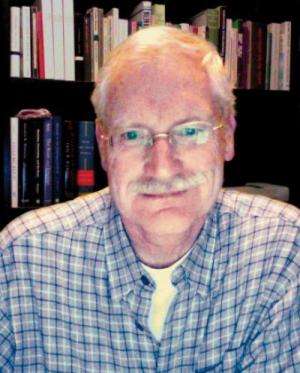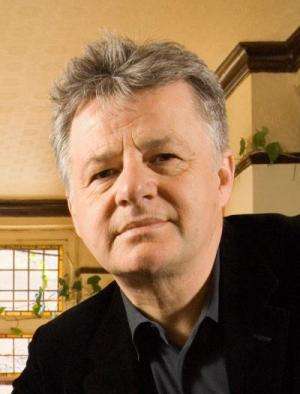The Zuelch Prize 2013—reward for brain researchers

Maximum reward, minimum punishment: these are the maxims humans and animals often apply when making decisions. A network of nerve cells in the brain conveys gratification. This reward system uses the messenger substance dopamine to influence learning, memory and decision-making processes in the brain. For their research into the reward system and other modulating networks, Wolfram Schultz from the University of Cambridge and Raymond J. Dolan from University College London have been awarded this year's K.J. Zülch Prize of the Gertrud Reemtsma Foundation. Both brain researchers have made important discoveries about the structure and function of the brain's reward system. The Prize will be conferred on 13 September 2013 in Cologne.
For some it's a glass of wine, for others a new pair of shoes; in the brain, it's the messenger substance dopamine which signals a reward. Cells in the brain secrete this neurotransmitter when they expect or receive a positive stimulus, activating a widely branching network of nerve cells. This dopamine reward system encompasses various parts of the brain, such as the midbrain, the striatum with the nucleus accumbens, the amygdala and some areas in the frontal cerebral cortex.
Thanks to the research conducted by Wolfram Schultz and Raymond Dolan, we now know about a number of systems which regulate learning and decision-making processes. These networks convey reward, feelings and attention and thus influence the decision-making processes in the brain. The two researchers have made a major contribution to explaining the role of various brain centres in conveying gratification.
For example, Wolfram Schultz discovered that rewards activate dopamine cells in the midbrain. To do this, he conducted conditioning experiments with non-human primates in which the animals had to learn to link a neutral stimulus with a reward. If the animals did so, the cells in the tegmentum responded to the stimulus by generating a short burst of electrical signals. If the stimulus was not followed by a reward, the neuronal activity subsided, thus adjusting to the level of reward.

Furthermore, the cells even compare the amount of the actual with that of the expected reward and determine whether their expectations have been met. If the reward exceeds their expectations, the cells become active; but if not, the cells remain quiescent.
Wolfram Schultz thus discovered the biological basis underlying key assumptions made by the psychological learning theory concerning gratification. He also used findings from theories on learning and economic decision-making to find reward and risk signals in dopamine cells and other parts of the reward system.
Raymond Dolan's investigations have shown that the reward system works in a similar way in humans. He used methods, such as functional nuclear magnetic resonance imaging (fMRI) coupled to computational modelling to non-invasively analyse the role of dopamine plays in decision-making processes. For example, he was able to explain why older people might make worse decisions when they are required to estimate the amount of an anticipated reward in a volatile environment. It appears that this is caused by a sub-clinical depletion of the dopaminergic nerve cells that occurs to a variable degree in normal ageing. By giving the dopamine agonist L-Dopa, which is also used to treat Parkinson's disease, Dolan was able to improve learning and decision-making in older test subjects such that their performance was more akin to an average twenty year old subject.
Using a combination of imaging processes, computational modelling and pharmacological interventions, he also discovered two separate decision making pathways work in parallel in the brain. One pathway runs centrally through the nucleus caudatus and is active when the brain contemplates the possible consequences of a decision. The other follows a lateral route via the putamen and enables decisions to be taken on the basis of learned experience or habit. He has shown that boosting dopamine with L-Dopa biases decision making towards being more consequentialist than habit based.
Dolan has also made important discoveries about how the brain makes social decisions, such as why people tend to take t very little notice of negative information and so underestimate the probability of negative events in the future. Here again he has shown an influence of dopamine, where boosting brain levels of dopamine enhances the bias not to update on the basis of receipt of negative information.
Wolfram Schultz was born in Meissen and studied medicine, mathematics and philosophy in Hamburg and Heidelberg. After research residencies at the Max Planck Institute for Biophysical Chemistry in Göttingen, in Buffalo and in Stockholm, from 1977 to 2001 he carried out research and taught at the University of Fribourg in Switzerland. He has been at the University of Cambridge since 2001. Raymond Dolan comes from Ireland and studied medicine at the University of Ireland in Galway. He has worked clinically at various hospitals, most notably at the National Hospital for Neurology and Neurosurgery, and is now Director of the Wellcome Trust Center for Neuroimaging at University College London.
The award ceremony for the K.J. Zülch Prize 2013 will take place on 13 September from 10 a.m. to noon in the Hansasaal of the historic Town Hall in Cologne. After a laudation to be given by Hans Jochen Heinze from the University of Magdeburg, Wolfram Schultz will talk about reward signals in the brain. Raymond Dolan will follow a laudation by Melanie Wilke from the University of Göttingen with a talk on the role of dopamine in the human brain.



















